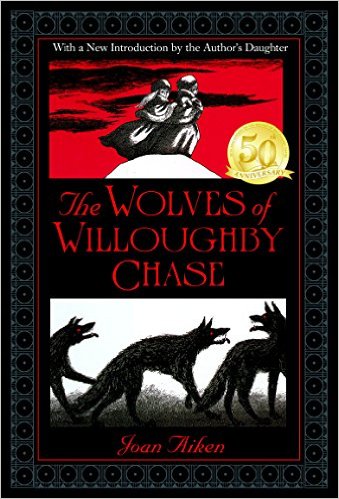
When Joan Aiken—who would have celebrated her 91st birthday on Friday—first appeared in the pages of TIME, the author didn’t even get the honor of having her full name in the review of her work. Rather, she was “Poet Conrad Aiken’s daughter Joan.”
But, as we revisit that review in honor of the birth of the author, who died in 2004, it’s clear that her daughter-of designation didn’t mean that her talent was less than stand-alone. In fact, the unbylined reviewer raved in a 1963 pre-Christmas round-up of new books for children, the book she had written was the year’s stand-out story:
More difficult is the yearly search for new fiction fit to place on the juvenile bookshelf alongside the likes of Munro Leaf’s Ferdinand and Grahame’s Wind in the Willows. In recent years the only vaguely acceptable candidate was Norton Juster’s Phantom Tollbooth (1961). But this year can boast one genuine small masterpiece. It is called The Wolves of Willoughby Chase (Doubleday; $2.95). Written, as any child’s book should be, with obvious fond delight by Poet Conrad Aiken’s daughter Joan, the book tells about two very small girls in a very big English country house almost entirely surrounded by dangers.
…”Snow lay piled on the dark road across Willoughby Wold,” Miss Aiken begins. “But from dawn men had been clearing it with brooms and shovels. There were hundreds of them at work, wrapped in sacking because of the bitter cold and keeping together in groups for fear of the wolves, grown savage and reckless from hunger.”
Besides those wolves, the book’s two young heroines come with a complete set of Victorian manners: one of them almost starves to death in a train compartment because her Aunt Jane has told her never to eat in the presence of strangers. Recounting their gothic torments at the hands of a cruel governess called Miss Slighcarp and a harpy schoolmistress named Mrs. Brisket, the author sometimes pirouettes on the filigreed edge of outrageous literary parody without ever undermining the suspense of a story suitable for anyone from seven to 70. Wolves, in fact, is almost a copybook lesson in those virtues that a classic children’s book must possess; charm, a style of its own, the skill and authority to create a small world without writing down to small readers.
Read the full story from 1963, here in the TIME Vault: From Pooh to Salinger
More Must-Reads from TIME
- Donald Trump Is TIME's 2024 Person of the Year
- TIME’s Top 10 Photos of 2024
- Why Gen Z Is Drinking Less
- The Best Movies About Cooking
- Why Is Anxiety Worse at Night?
- A Head-to-Toe Guide to Treating Dry Skin
- Why Street Cats Are Taking Over Urban Neighborhoods
- Column: Jimmy Carter’s Global Legacy Was Moral Clarity
Write to Lily Rothman at lily.rothman@time.com